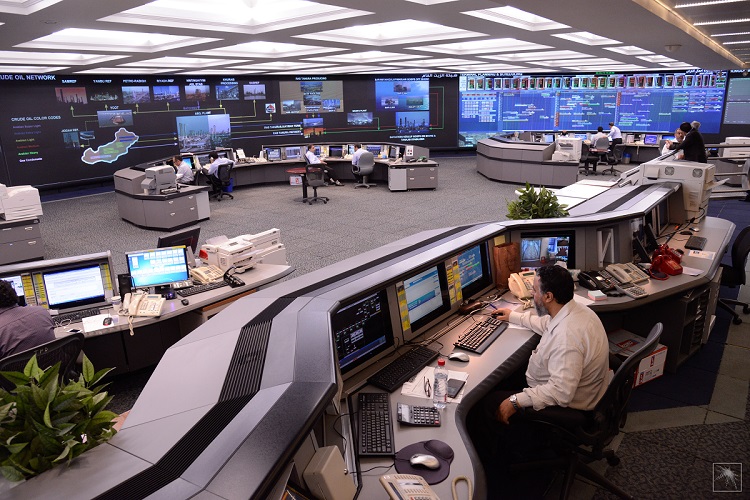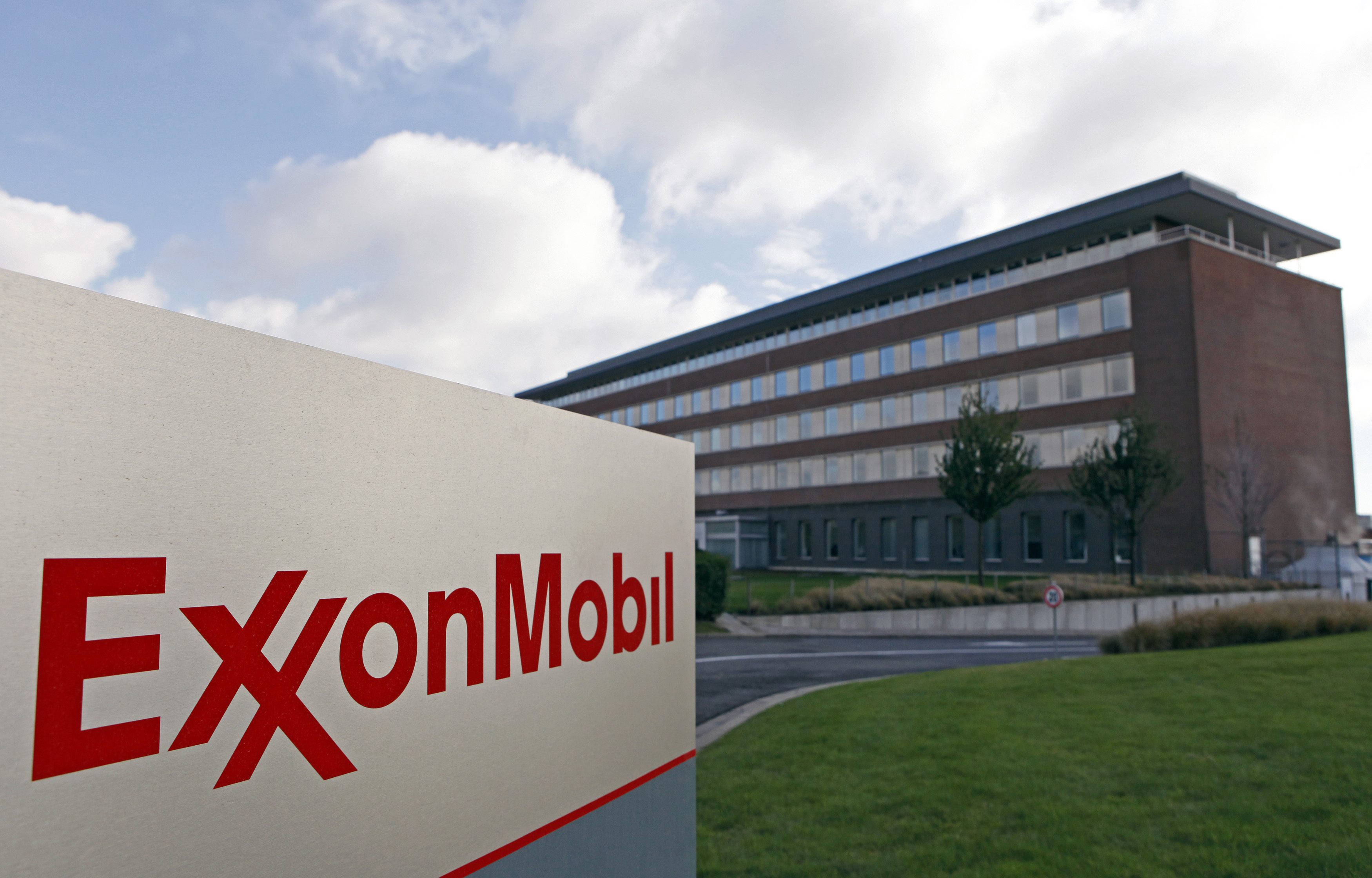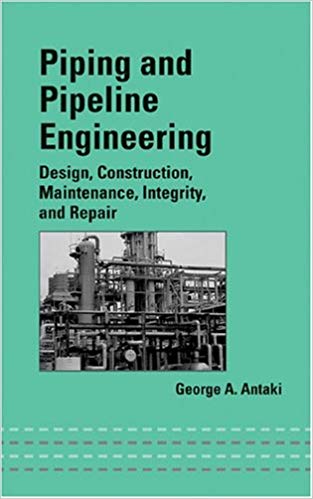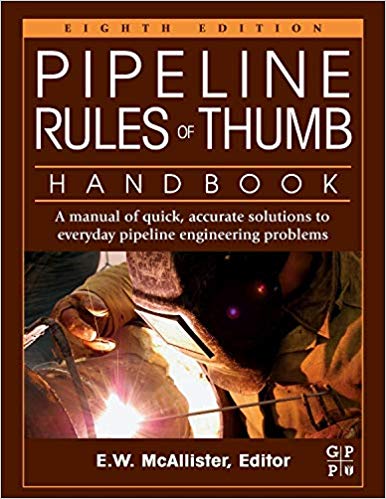RIYADH/DUBAI, May 14 (Reuters) - Saudi Arabia said armed drones had struck two oil pumping stations on a pipeline Tuesday in what it called a "cowardly" act of terrorism two days after Saudi oil tankers were sabotaged off the coast of the United Arab Emirates.

Saudi Aramco's OSPAS center monitors the movement of crude oil, natural gas and refined products througout the kingdom. (photo: Saudi Aramco)
The energy minister of the world's largest oil exporter said the attack caused a fire, now contained, and minor damage at one pump station, but did not disrupt oil output or exports of crude and petroleum products.
State-run Aramco said it had temporarily shut down the East-West pipeline, known as Petroline, to evaluate its condition. The pipeline mainly transports crude from the kingdom’s eastern fields to the port of Yanbu, which lies north of Bab al-Mandeb.
Oil prices rose on news of the attack on the stations, more than 200 miles (320 km) west of the capital Riyadh. Brent was trading at $71.07 a barrel by 1347 GMT, up 1.20%.
Energy Minister Khalid al-Falih, in comments run by state media, said the drone attack and Sunday's sabotage of four vessels, including two Saudi tankers, off Fujairah emirate, a major bunkering hub, threatened global oil supplies.
"These attacks prove again that it is important for us to face terrorist entities, including the Houthi militias in Yemen that are backed by Iran," Falih said in an English-language statement issued by his ministry.
Houthi-run Masirah TV earlier said the group had carried out drone attacks on "vital" Saudi installations in response to "continued aggression and blockade" on Yemen.
A Houthi military spokesman claimed responsibility for the attack.
"The operation was executed using seven drone planes from the Air Force's drone weaponry," the spoksman, Yahya Sarea, said. "They have targeted the oil pumping stations at the main pumping lines, the eighth and the ninth, which act as a connection between Ra'as Al-Tanoura and Yanbo, and which pumps three million barrels of oil daily."
A Saudi-led coalition has been battling the Houthis for four years in Yemen to try to restore the internationally recognized government, in a conflict widely seen as a proxy war between Saudi Arabia and Iran.
The Houthis have repeatedly hit Saudi cities with drones and missiles, but two Saudi sources told Reuters this was the first time an Aramco facility was attacked by drones.
The attacks occurred amid a war of words between Washington and Tehran over sanctions and the U.S. military presence in the region.
Iraqi Prime Minister Adel Abdul Mahdi said on Tuesday that neither the United States nor Iran wanted war, and Iraq was in contact with both, state news agency INA reported.
"Any dangerous slip and the region will pay a dangerous price, Iraq will pay a dangerous price," Mahdi added.
Iran in Focus
The UAE has not revealed details about the nature of the attack on ships near Fujairah port, which lies just outside the Strait of Hormuz, or blamed any party or country.
Iran was a prime suspect in the sabotage on Sunday although Washington had no conclusive proof, a U.S. official familiar with American intelligence said on Monday.
Iran has denied involvement and described the attack on the four commercial vessels as "worrisome and dreadful". It has called for an investigation.
The U.S. ambassador to Saudi Arabia said Washington should take what he called "reasonable responses short of war" after it had determined who was behind the attacks near Fujairah.
"We need to do a thorough investigation to understand what happened, why it happened, and then come up with reasonable responses short of war," Ambassador John Abizaid told reporters in the Saudi capital Riyadh in remarks published on Tuesday.
"It's not in (Iran's) interest, it's not in our interest, it's not in Saudi Arabia’s interest to have a conflict."
The U.S. Embassy in the UAE advised its citizens to maintain a high level of vigilance for heightened tensions in the region.
The Saudi stock index, which suffered heavy losses in the last two days, closed up 0.1% after falling as much as 2.1% on the drone attacks. A Saudi-based banker said that state funds were supporting local stocks to limit the downside.
Washington has increased sanctions on Tehran, saying it wants to reduce Iranian oil exports to zero, after quitting the 2015 nuclear pact between Iran and global powers last year.
The U.S. Maritime Administration said last week that Iran could target U.S. commercial ships including oil tankers sailing through Middle East waterways. Tehran has called the U.S. military presence "a target" rather than a threat.
About 30% of all seaborne oil exports pass through the Strait of Hormuz from Middle East crude producers to markets in Asia, Europe, North America and beyond. The narrow waterway separates Iran from the Arabian Peninsula.
Iran's Revolutionary Guards threatened last month to close the chokepoint if Tehran was barred from using it.
U.S. President Donald Trump wants to force Tehran to agree a broader arms control accord and has sent an aircraft carrier and B-52 bombers to the Gulf in a show of force against what U.S. officials have said are threats to U.S. troops in the region.




















